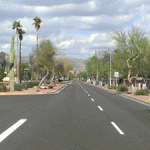 Cars 101: Learn what you need to know about your car
Cars 101: Learn what you need to know about your car
Keeping your car well maintained could be key to preventing unexpected breakdowns in dangerous or remote areas. Brake inspections, fluid level checks, oil changes, tire inflation checks, belt checks, and inspection of lights are important.
Because all models of vehicles vary, maintenance should be performed between 3,000-7,500 miles. Sometimes, these checks will involve only an oil change. Other times, a more complex check of items including gauges, sensors, and belts is required.
On average you should check your car’s engine oil monthly. The car should be parked on level ground so you can get an accurate reading. For normal driving, many automakers recommend changing the engine oil and filter every 7,500 miles or six months, whichever comes first. This should help prevent buildup of sludge and grime, which lengthens the life of your engine. Check your owner’s manual for the specific intervals recommended for your vehicle. Most auto maintenance should include checking air filter, brakes, tires, fluids, lights, radiator, and checking the battery terminals and cables as a matter of course. It may cost a little more, if this is not included with your service, but it can save you from trouble in the future.
As temperatures drop so does tire pressure. Properly inflated tires ensure optimum tire performance and optimum vehicle driving range. Check tire pressure and make sure each tire is filled to the vehicle manufacturer’s recommended inflation pressure, which is listed in your owner’s manual and on a label located on the driver’s side doorjamb. The tire pressure listed on the tire itself only indicates the maximum pressure the tire can hold, it does not indicate the proper pressure for each specific vehicle.
Tire condition is another important thing to be aware of. Check for uneven wear, bulges, and holes. This can save you plenty of money in the future. When purchasing new tires, find locations that offer free tire rotations to customers. By keeping tire treads from wearing irregularly, your tires will last longer. One good method for checking treads is by placing a penny into the tread mark. Proper tread depth should come to the top of Lincoln’s head. Every 7,000 miles, it is essential to have your tires rotated.
You should have your radiator flushed and refilled, if recommended, by your car’s service technician. This can prevent radiators from developing holes prematurely. This is particularly important in hotter climates.
Always make sure you have a full windshield fluid tank. Clean windows reduce glare and can be the key to preventing some accidents. It is recommended you replace your windshield wiper blades twice a year. This is especially true in hot areas that dry out the rubber. Dirt can also cause blades to wear quickly.
Properly working lights are important to preventing accidents. Headlights, turn signal lights, brake lights, and parking lights should be inspected regularly. With your car parked or backed behind any reflective surface (garage door, store window etc.) turn on your lights, use your signal and brakes to see if they are working properly. If they are not, replace the blown bulbs. This can prevent others from rear ending you.
Every few months, you should check all seat belts for frays, twists, or rips. In the event of an accident, a worn seat belt could fail causing you permanent injury or even death.
Taking the time to ensure your car is good working condition is not hard, especially if you make this a habit. It can keep you safe, however, so don’t fail to provide proper upkeep on your vehicle.


